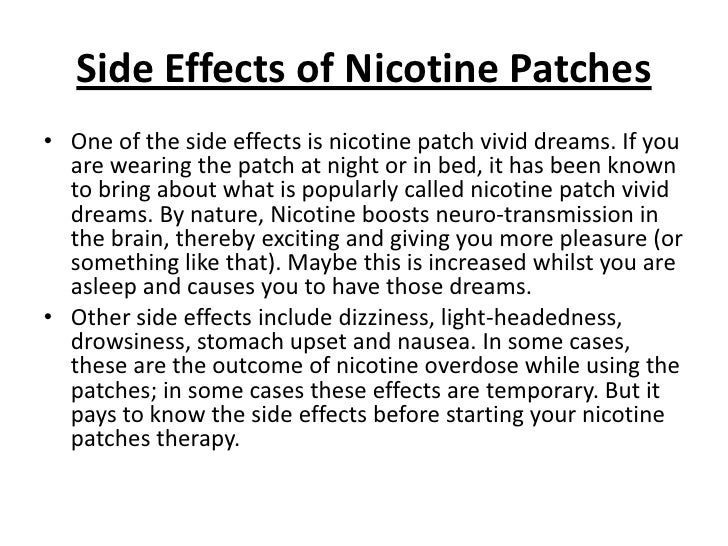2020. 3. 6. 15:27ㆍ카테고리 없음
Published: March, 2014It gets people hooked on cigarettes, but researchers hope thatnicotine and related compounds will have therapeutic uses.Nicotine is rightly reviled because of its associations withsmoking and addiction. But the rogue substance has a wide rangeof effects on the brain, which may include some healingproperties. Researchers are testing nicotine and relatedcompounds as treatments for Alzheimer's disease, Parkinson'sdisease, attention deficit/hyperactivity disorder (ADHD), andother conditions.

Using nicotine as a cognitive enhancerPosted on June 25, 2017 by delton137inFor the past few months I’ve been experimenting with nicotine as a nootropic. A nootropic substance is one that improves cognitive function without any harmful effects, and ideally is non addictive and non habit forming. A lot of nootropics do not have hard science backing them up. Nicotine is one of the very few that has scientific literature showing general cognitive benefits.Is it addictive?Cigarette smoke contains over 5,000 compounds, but in popular discourse nicotine gets all the attention as the ‘thing that makes cigarettes addictive’. The widespread belief that nicotine alone causes cigarettes to be addictive is due to an influential 640 page report entitled “ ” that was released in 1988 by the U.S. Surgeon General.
Nicotine Patch Coupons
The report leads with the summary statement that “Nicotine is the drug in tobacco that causes addiction”, and goes on to suggest that nicotine is similar in its level of addictiveness to heroin. Today this report is viewed as flawed, because it drew on studies of tobacco use to establish the addictiveness of nicotine, rather than studies on nicotine in isolation. In the intervening years, marketing hype around nicotine replacement products for smoking cessation has kept the focus on nicotine as ‘the solution’ to getting cigarette users to stop smoking. More recently, people have promoted E-cigs as a path to smoking secession, an idea which remains very controversial, but is promising from a harm reduction perspective.Because they deliver nicotine quickly to the brain, e-cigs are one of the most addictive methods of nicotine delivery.A large meta-analysis found that nicotine replacement products (NRP) increased the likelihood of quitting smoking by 50-70%. However, the base rate for being able to quit cigarettes during any multi-month program remains low (5%??), and the number of people who are able to quit after NRP program is likewise low (10-20%).

These stubbornly low rates of success have lead some researchers to wonder if something else is making cigarettes addictive. Recent research suggests that the addictiveness of cigarettes may be due to an interaction between s (which are found in tobacco smoke) and nicotine. Contains much more discussion and extensive references on this point.I n response to the focus on nicotine as the cause of smoking’s addictiveness, Frenk and Dar wrote a 241 page monograph, “ ” (2002). As notes, the authors generally overstate their case by trying to argue that nicotine is not addictive at all. The general consensus is that nicotine is addictive.Animals, including rats and squirrel monkeys, will self administer nicotine. Nicotine addiction appears to occur through the dopamine system – killing the dopaminergenic neurons in animal models leads to a cessation of self-administration. Interestingly, the dose-response curve of nicotine quickly flattens out in rats — ie. They will quickly self limit how much they are taking.
This is in contrast to drugs such as cocaine or amphetamines. Nicotine intake in humans usually lies in a narrow range, between 2-30 mg per day.The addictiveness of nicotine is modulated by the intensity and duration of nicotine exposure. In general with addictive substances, the more quickly it is delivered, the more dopamine and reward substances are produced. The brain contains mechanisms for for tolerance/habituation, to prevent too many reward compounds from being produced, but when nicotine is delivered quickly, the brain just doesn’t have the time to develop tolerance. Another reason that fast delivery (ie.
Adhd After Quitting Smoking
Through vaping / smoking) is more addictive than other methods of intake is that it easier for you brain to associate the reward to the act of smoking / inhaling. Nicotine enters the brain only 10-20 seconds after a person takes a draw from a cigarette.
Nicotine Patch For Adhd
Finally, nicotine receptors sensitize and desensitize fairly quickly.Optimal dosing and delivery method for nootropic benefitA cigarette administers about 2 mg of absorbed nicotine.